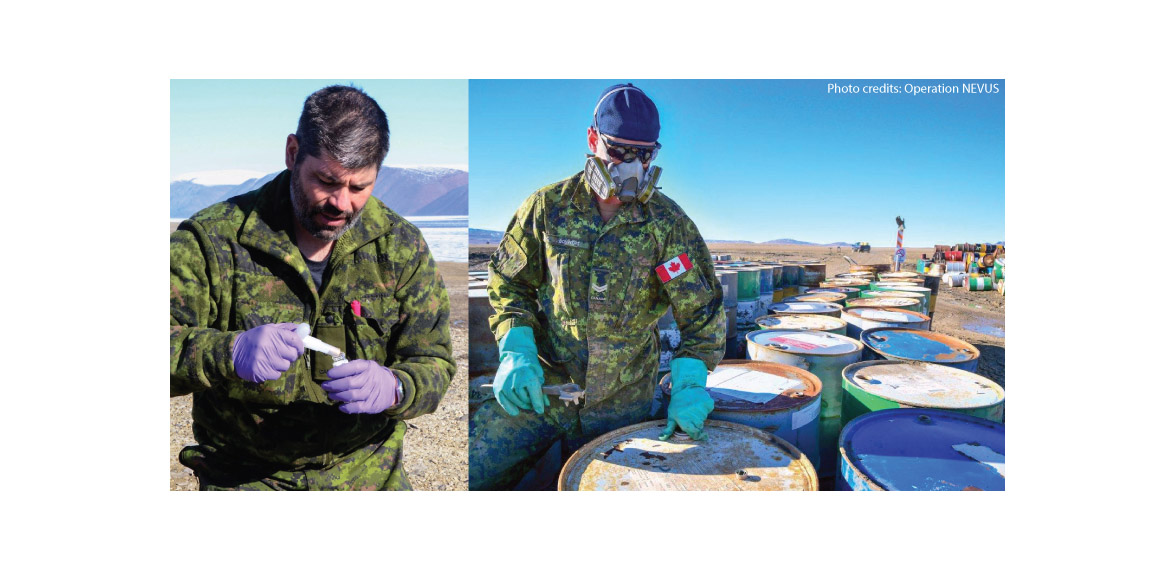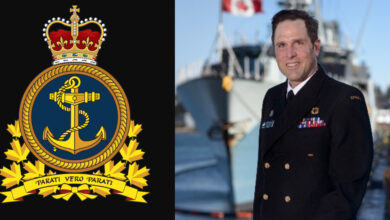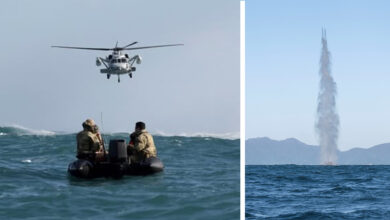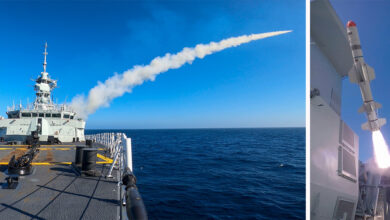Operations
Preserving Canada’s North for the future
Canadian Armed Forces (CAF) members are serving up North, communicating effectively, can at times pose as a challenge. The High Arctic Data Communications System (HADCS) helps them overcome this challenge by using a series of line-of-sight microwave repeaters. These repeaters ensure a well-established connection between Canadian Forces Station (CFS) Alert and Ottawa.
As part of Operation NEVUS 2018, a team of 100 people that included engineers, technicians, environmental specialists, and CAF members, were deployed to perform maintenance duties at the HADCS locations.
Due to the fierce and unpredictable weather, and the unique wildlife who call the Northern area home, there are many delicate environments present. The Environmental Advisor to Joint Task Force North (JTFN), Dr Peter Cott, described conditions up North as ‘largely untouched and pristine, harsh climates, and wildlife eking out a living in austere and difficult conditions.’
While HADCS maintenance was primarily the focus of Operation NEVUS, this year environmental work had been added as a phase two operation. In a decade-long initiative, the Environmental Stewardship Project focuses on improving the ecological conditions of Northern Ellesmere Island.
Dr. Cott believes that when Operation NEVUS is complete, and they leave to go home, Northern Ellesmere Island should be in better condition than when they arrived.
When Operation NEVUS 2017 ended, JTFN began planning for the environmental stewardship project. Sites like Lake Hazen and Ward Hunt are on JTFN’s list of places to visit as they contain abandoned research stations and legacy fuel caches. These particular sites once carried fuel and supplies for pilots on the go.
At one time, these sites were said to have been held to high environmental standards. JTFN is making their rounds to the sites to asses any ecological impacts that may have occurred. The primary focus of the group was to take samples and to identify any potential environmental contamination or threat.
A project such as this cannot go off alone, and Dr Cott said it requires some inter-governmental cooperation. He added that everyone believes it’s a good idea to clean up the environment up North, but it is quite expensive, remote, and more complicated for anyone single agency to complete.
Parks Canada supports JTFN, and an agreement that gives the CAF access to these crucial sites, also partnering with Environment and Climate Change Canada by utilizing their resources such as the Eureka Weather Station.
In previous years, JTFN already partook in environmental work alongside HADCS maintenance by way of removing, cleaning, and destroying old fuel containers that were possibly posing a threat to the environment. Other active fuel caches were operating at optimal environmental standards.
The Environmental Stewardship Project is just the beginning in making the environment better for future generations by continuing cleaning efforts in the North.











